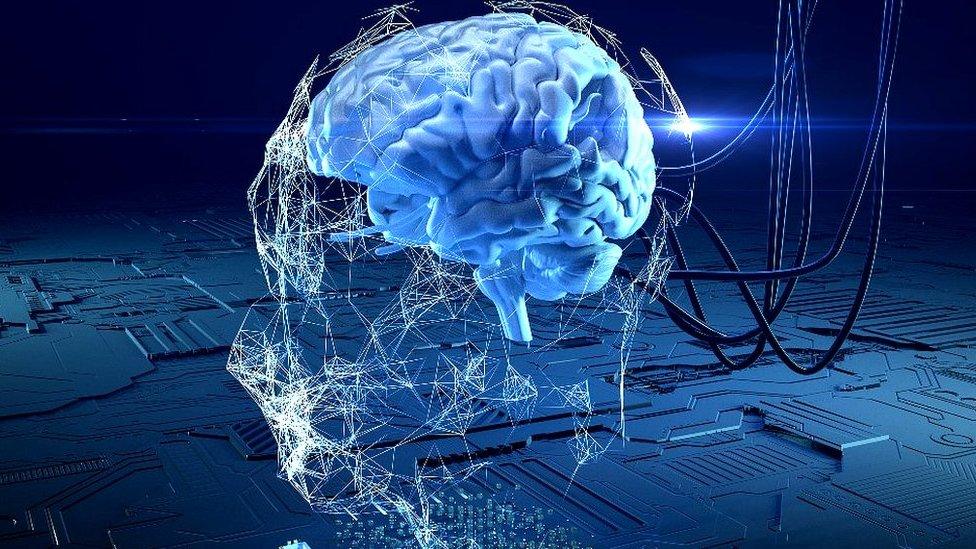Brain back-up firm Nectome loses link to MIT
- Published

Nectome aims to preserve biomolecules in the brain to let memories be saved after death
A company attempting to map people's brains so their memories can be stored in computers has lost its link to one of the United States' top universities.
US start-up Nectome revealed its brain back-up plan last month, warning at the time that the process involved would be "100% fatal".
A number of neuroscientists subsequently poured scorn on the plan.
The Massachusetts Institute of Technology (MIT) has now announced that it is .
One of the university's professors had previously benefitted from a federal grant given to Nectome and was attempting to combine its work with his own research into mouse brains.
"Neuroscience has not sufficiently advanced to the point where we know whether any brain preservation method is powerful enough to preserve all the different kinds of biomolecules related to memory and the mind," said the MIT in .
Nectome : "We appreciate the help MIT has given us, understand their choice, and wish them the best."
'Potential to benefit humanity'
The university's in-house publication MIT Technology Review had been first to draw attention to Nectome's plans and .
It has since reported that the collaboration had attracted "sharp criticism" from experts in the field, who feared it lent credibility to an effort that was doomed to fail.
"Fundamentally, the company is based on a proposition that is just false," said Sten Linnarsson of the Karolinska Institute in Sweden.
"[And there's a risk] some people actually kill themselves to donate their brains."
Nectome had previously said that it believed it would one day be possible to survey connectome - the neural connections within the brain - to such a detailed degree that it would be able to reconstruct a person's memories.
In order to achieve this, the brain must be preserved at point of death - a process called vitrifixation.
Some experts have cast doubt over whether memories can be extracted from dead brain tissue
MIT Technology Review had reported that the firm was soon hoping to test its theories on the head of someone planning a doctor-assisted suicide.
However, Nectome has acknowledged that its work is at a relatively early stage.
"We believe that clinical human brain preservation has immense potential to benefit humanity, but only if it is developed in the light, with input from medical and neuroscience experts," it said in a statement .
"We believe that rushing to apply vitrifixation today would be extremely irresponsible and hurt eventual adoption of a validated protocol."
Despite the sceptics, Nectome has won a $960,000 (£687,000) grant from the US National Institute of Mental Health.
It is also backed by Y Combinator, a high-profile Silicon Valley-based funder that previously invested in Dropbox, Airbnb and Reddit among others.
- Published14 March 2018